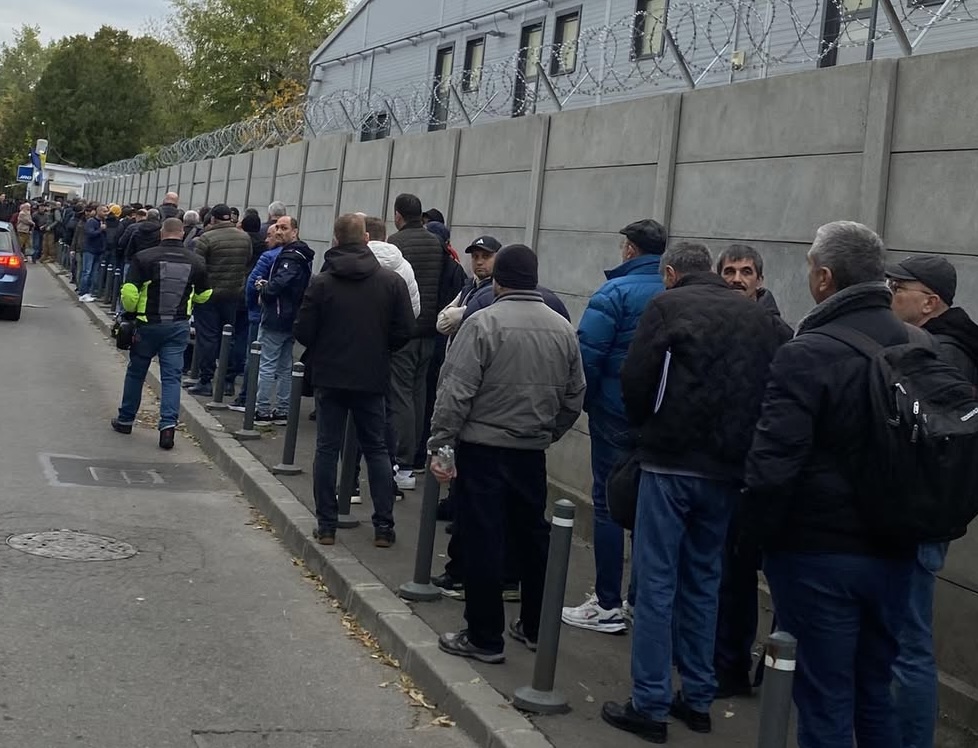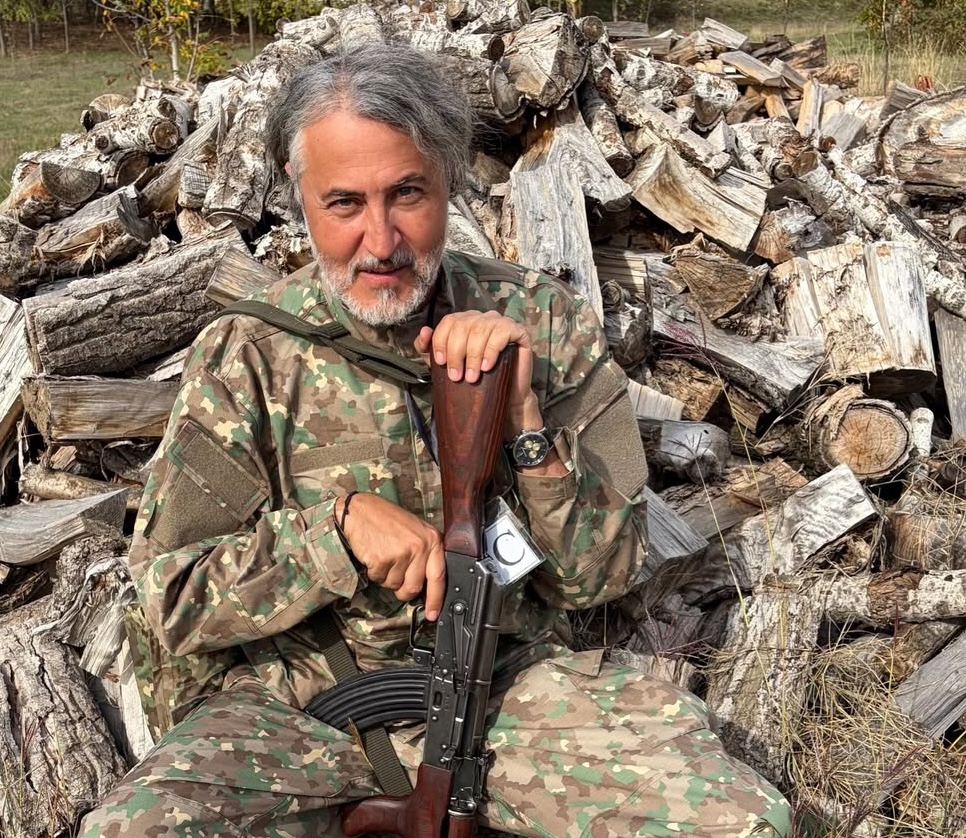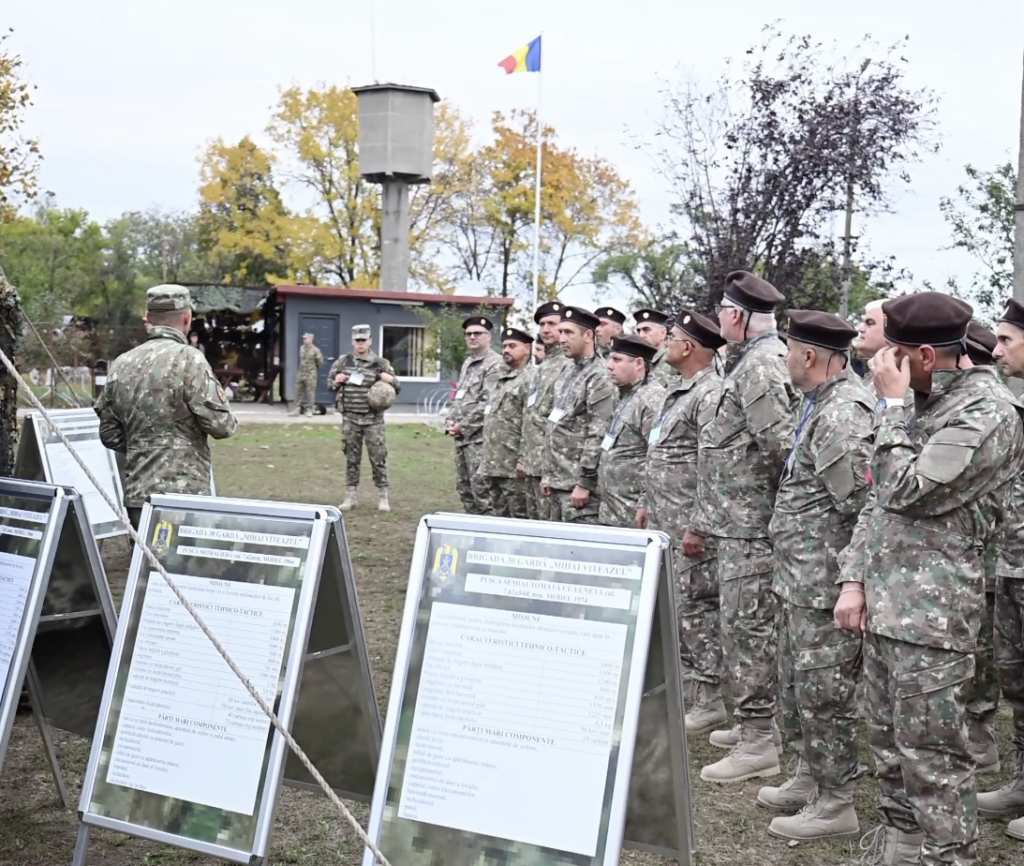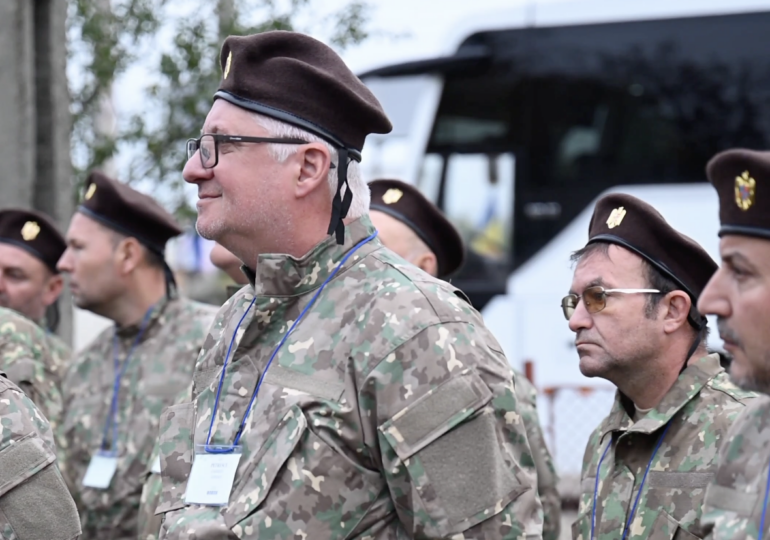Andrei Roșu, 49 years old, is one of the 10,000 reservists involved in a mobilization exercise taking place these days in Bucharest and Ilfov.
The well-known promoter of sports and a healthy lifestyle, a participant in a series of endurance competitions, shared on his Facebook page how he received the „call to reservists” order, and the whole exercise was like „standing in line.”
„I sat disciplined in line, one of a maximum of 100 people, in front of the military unit. As a side note…, two hours later, the line was gone. Probably everyone assumed, like me, that 08:00–20:00 is not a time interval when you can show up anytime, but the actual time allocated for the military exercise,” Andrei Roșu recounted in his post.
The entire operation was, besides waiting in line, a bureaucratic one, where those called were measured with a tailor's meter and asked for their shoe size, "most likely for creating a database for potential equipment in case of need," Andrei Roșu stated in a conversation with SpotMedia.

There are hundreds of such posts and videos on social media with testimonies from the mobilization exercise. From these, as well as from the official position of the Ministry of Defense, it appears that the exercise aimed to test the response of individuals who went through mandatory military service, suspended two decades ago.
"The Ministry of Defense wants to see how many reservists manage to reach the military unit they belong to and especially how quickly, if they are notified just 24 hours before the time and date set on the summons, because in a real situation, the mobilization call specifies the term immediately," stated in an official statement by the ministry.
The Guys from Delta Force
Another declared objective of the army leadership was to observe how active military personnel adapt to reservists.
Most of those called upon through the implementation of this exercise are men over 50 years old, most of whom underwent mandatory military service during the Ceaușescu dictatorship. They do not have a very good opinion of Romania's military system, which traumatized them in their youth, with many of them surprised to discover that old dysfunctions - queues, poor coordination, and logistical problems - have survived to this day.
On the other hand, many have also discovered positive aspects - new weapons, professional soldiers, non-commissioned officers who speak politely to subordinates and those around them, good food.
"...I find in a more secluded area a few guys from the special forces, weapons that we see in Delta Force, and our guys look even better than what we see in TV series and have the attitude we want our troops to have," actor Gavril Pătru recounted, another reservist who participated in the mobilization exercise.

The complex operation designed and executed in Bucharest and Ilfov, an urban, densely populated area with a high standard of living and a connected population that follows internal and international events, also represents the first step by the authorities to move away from the passive attitude towards the onset of a military conflict in the neighboring country.
Exiting Passivity
In the last three and a half years, only reassuring and demobilizing messages have come from the President and the Government: We are in NATO! We are in the European Union! Nothing bad can happen.
However, the evil has turned Romania upside down, causing the entire leadership system of the country, politically and institutionally, to lose its internal and international credibility.
Of course, there can be problems, there are over 10,000 reservists here in Bucharest. This is precisely the purpose of the exercise, to adapt to the conditions we have now and see what doesn't work, in order to remedy it along the way... One of the exercise's objectives is also collaboration, cooperation between active military personnel and reservists.
Colonel Corneliu Ștefan Pavel, spokesperson for the Ministry of National Defense
The undeclared purpose of the military exercise is also to break away from the passivity until now, triggering a long and complicated process of forming a competitive and prepared army to defend the country without waiting for outside help.
The major problem of the Ministry of Defense is that it relies on an aging reservist army, individuals over 40 years old, with the majority around the age of 60, and without training and instruction stages.
After 2006, the moment when mandatory military service was abolished, there are no longer data or contacts between recruitment services and those fit for military activities.
Antidote to Russia's Propaganda
In the context of the war in Ukraine, Romania has been bombarded with false information about our participation in an imminent military conflict, about sending troops to the neighboring country, or about general mobilization.
The entire operation of flooding the communication space with lies related to the armed forces aimed to create widespread fear so that a strong tendency to reject any measures aimed at increasing Romania's defense and military response capacity would arise among the population.
For example, this is the first contact exercise between the armed forces and reservists from Bucharest and Ilfov since Russia invaded Ukraine.

"Similar exercises have taken place throughout the country, in Bucharest, last time in 2013, and in Ilfov in 2021," as stated in a press release from the MoD.
To address the issue of reservists, a voluntary enrollment structure for civilians and participation in paid military training stages has been created, in order to establish an available, trained human force ready to become part of the active military forces in case of need.
In 2025, 5,000 positions were created for volunteer reservists, distributed in units across the country.
The mobilization exercise in Bucharest and Ilfov, set to conclude on October 20, has become one of the main topics of debate on social media. Conspiracy theories and alarmist messages related to an imminent war are not lacking. The best antidote to this type of Russian propaganda is represented by the testimonies of those who participated in the event and recount how it was, with its positives and negatives.
After two decades, the Romanian Army takes a first step to rebuild its relationship with citizens, to find a way of communication and understanding so that the complex institution is no longer perceived as a massive bureaucratic structure, highly specialized, far from people's daily lives.

